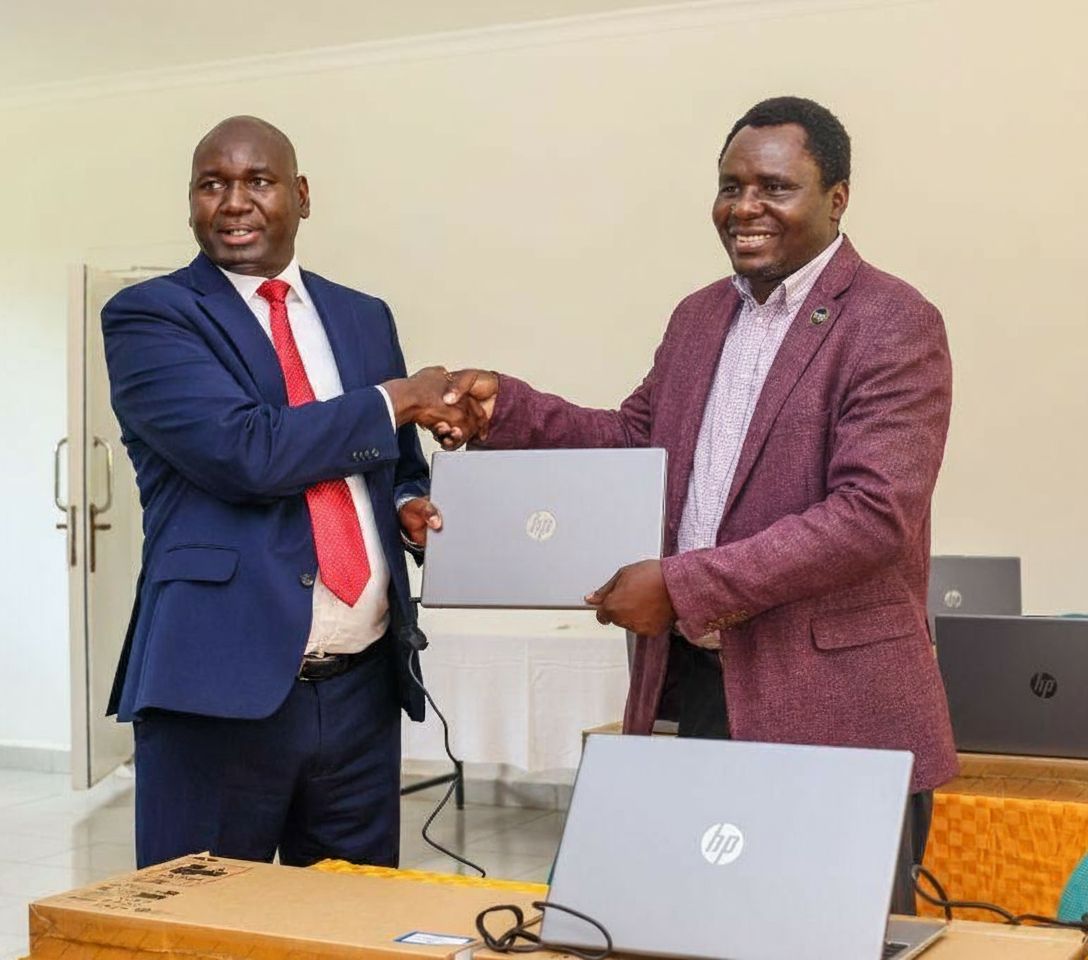- The 254 Report
- Posts
- Kenya’s Education Ministry and Intel Partner to Equip Teachers with AI and STEM Skills
Kenya’s Education Ministry and Intel Partner to Equip Teachers with AI and STEM Skills

CEMASTEA hosts a groundbreaking national training to empower teachers with Artificial Intelligence and STEM integration competencies for effective Competency-Based Curriculum rollout.
Kenya is accelerating its transformation into a digital-first education system as the Ministry of Education, in partnership with Intel and Simba AI, launches advanced teacher training on artificial intelligence at the Centre for Mathematics, Science and Technology Education in Africa (CEMASTEA).
The initiative aims to prepare secondary school teachers and heads of departments for the upcoming transition of Grade 9 learners into Grade 10 in 2026, a major milestone under the Competency-Based Curriculum (CBC) framework.
“We are here to retool our teachers so that they can deliver competence-based education in a more solid, technology-driven way,” said Professor Julius Kibet Bitok from the Ministry of Education.
“Our goal is to ensure that by January 2026, all teachers will have been trained on AI and fully prepared to manage the transition to Senior School.”
Empowering Teachers for the CBC Era
The program focuses on hands-on AI literacy and STEM teaching practices. According to Dr. Bitok, all 9,550 schools across Kenya will adopt STEM pathways, supporting over 1.2 million learners transitioning into Senior School.
“AI is now the new internet,” Dr. Bitok remarked.
“It will help teachers prepare lessons, generate schemes of work, conduct research, and even analyze learner data faster and more efficiently.”
Intel’s support includes resources, capacity-building assistance, and a donation of laptops to facilitate AI integration in classrooms. The Ministry is also rolling out 10,000 laptops and smartphones to extend digital access to schools nationwide, supported by the Kenya Education Management Information System (KEMIS) to drive data-informed learning.
Intel and Simba AI: Reimagining Teaching
Speaking at CEMASTEA, Dr. Mark Matunga of Intel emphasized the importance of equipping teachers with tools that match learners’ growing familiarity with technology.
“Artificial Intelligence is the dominant technology shaping global learning,” said Dr. Matunga.
“Teachers must be able to integrate AI into curriculum delivery - - helping them understand each learner’s pathway, strengths, and learning preferences.”
He explained that AI can analyze student performance data to recommend suitable learning paths, whether in STEM or arts, ensuring that every learner progresses according to their competencies.
“Learners are already ahead of teachers in technology use,” Dr. Matunga added.
“AI helps educators catch up and become facilitators of meaningful, skill-based learning.”
A Cascade Model for National Impact
The training at CEMASTEA follows a cascade model, beginning with Trainers of Trainers (TOTs) who will later conduct similar sessions across all counties. Intel and Simba AI have already trained lead officers at CEMASTEA, creating a multiplier effect to reach educators countrywide.
“The TOTs will become AI champions in their regions,” noted Dr. Matunga.
“This ensures sustainability and consistent application of digital learning principles in all schools.”
He also reassured educators that AI does not require expensive infrastructure.
“Any teacher with a smartphone already has the power to use AI,” he said.
“They can integrate it into everything - -from lesson planning to learner evaluation.”
Ethical and Practical Use of AI
While encouraging innovation, Dr. Matunga stressed the need for responsible AI use in schools.
“Avoiding bias comes down to how you prompt and the diversity of platforms you use,” he explained.
“Teachers should cross-check information from multiple AI tools and apply professional judgment to ensure accuracy and fairness.”
The approach aligns with the Ministry’s commitment to ethical technology integration in education - - balancing automation with human insight.
Kenya’s Digital Future
Both leaders reinforced that AI in education is not a distant ambition but a present reality shaping the next generation of Kenyan learners.
“AI empowers teachers to unlock each learner’s potential,” said Dr. Matunga.
“When educators embrace technology, classrooms become spaces of innovation and discovery.”
“Artificial Intelligence is not just the future - -it is already here,” concluded Dr. Bitok.
“Kenya’s teachers must lead the way in driving digital learning across Africa.”
Reply